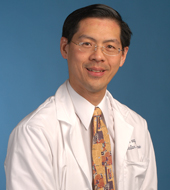Resumo
Definição
História e exame físico
Outros fatores diagnósticos
- história de desmaios recorrentes
- ausência de doença cardíaca estrutural
- fator provocativo
- náuseas
- baixo risco para desfechos adversos
- tontura
- palidez
- diaforese
- diminuição da visão ou audição
- lesão física
- fadiga após episódio
- palpitações
- bradicardia
- ausência de história familiar de morte súbita
- neuralgia
Fatores de risco
- síncope prévia
- história prévia de arritmias, infarto do miocárdio, insuficiência cardíaca ou cardiomiopatia
- estenose aórtica grave
- posição ortostática por tempo prolongado
- estresse emocional (principalmente em um ambiente quente e lotado)
- desidratação/hipovolemia
- episódio precedente de náuseas e/ou vômitos
- episódio precedente de dor intensa
Investigações diagnósticas
Primeiras investigações a serem solicitadas
- eletrocardiograma (ECG) de 12 derivações
- hemoglobina sérica
- glicose sanguínea plasmática
- beta-hCG (gonadotrofina coriônica humana) sérica
- enzimas cardíacas
- Nível de dímero D
- cortisol sérico
- ureia ou creatinina sérica
Investigações a serem consideradas
- ecocardiograma
- teste da mesa inclinável
- massagem do seio carotídeo (MSC)
- loop event recorder implantável
- estudo eletrofisiológico
- manobra de Valsalva
- teste ortostático ativo
- teste pressor ao frio
- teste da tosse
Novos exames
- teste de adenosina trifosfato (ATP)
Algoritmo de tratamento
desmaio vasovagal
desmaio situacional
síndrome do seio carotídeo
Colaboradores
Autores
Bryant Lin, MD

Clinical Assistant Professor of Medicine
Division of Primary Care and Population Health
Stanford University School of Medicine
Stanford
CA
Declarações
BL declares that he has no competing interests.
Paul J. Wang, MD, FACC, FHRS

Professor of Medicine
Stanford Arrhythmia Service
Stanford University School of Medicine
Stanford
CA
Declarações
PJW receives fellowship support, honoraria, and clinical trial support from Medtronic, which manufactures LINQ, an implantable loop recorder.
Agradecimentos
Dr Bryant Lin and Dr Paul J. Wang would like to gratefully acknowledge Dr David G. Benditt and Dr John T. Nguyen, previous contributors to this topic.
Declarações
DGB has consultant and equity positions: Medtronic Inc., St Jude Medical Inc., Transoma Inc., Cardionet Inc. DGB is also an author of several references cited in this topic. JTN declares that he has no competing interests.
Revisores
Sanjiv Petkar, MBBS, MD, DM (Cardiology), MRCP
Consultant Cardiologist
Hull and East Riding of Yorkshire NHS Trust
Castle Hill Hospital
East Yorkshire
UK
Declarações
SP has received sponsorship in the past from Medtronic, Inc. and St Jude Medical, Inc. for attending conferences. He has received speaker's fees from Medtronic, Inc. In addition, he was in receipt of a research grant from Medtronic, Inc. to the University of Manchester.
Kenneth A. Ellenbogen, MD
Kontos Professor of Cardiology
Medical College of Virginia
Richmond
VA
Declarações
KAE declares that he has no competing interests.
Andrew Parfitt, MBBS, FFAEM
Clinical Director
Acute Medicine
Associate Medical Director
Consultant Emergency Medicine
Guy's and St Thomas' NHS Foundation Trust
Clinical Lead and Consultant
Accident Emergency Medicine
St Thomas' Hospital
London
UK
Declarações
AP declares that he has no competing interests.
Créditos aos pareceristas
Os tópicos do BMJ Best Practice são constantemente atualizados, seguindo os desenvolvimentos das evidências e das diretrizes. Os pareceristas aqui listados revisaram o conteúdo pelo menos uma vez durante a história do tópico.
Declarações
As afiliações e declarações dos pareceristas referem--se ao momento da revisão.
Referências
Principais artigos
Shen WK, Sheldon RS, Benditt DG, et al. 2017 ACC/AHA/HRS guideline for the evaluation and management of patients with syncope: a report of the American College of Cardiology/American Heart Association Task Force on clinical practice guidelines, and the Heart Rhythm Society. Heart Rhythm. 2017 Aug;14(8):e155-217.Texto completo Resumo
Brignole M, Moya A, de Lange FJ, et al; ESC Scientific Document Group. 2018 ESC guidelines for the diagnosis and management of syncope. Eur Heart J. 2018 Jun 1;39(21):1883-948.Texto completo Resumo
Moya A, Brignole M, Menozzi C, et al; International Study on Syncope of Uncertain Etiology (ISSUE) Investigators. Mechanism of syncope in patients with isolated syncope and in patients with tilt-positive syncope. Circulation. 2001 Sep 11;104(11):1261-7.Texto completo Resumo
Sandhu RK, Raj SR, Manlucu J, et al; Primary Writing Committee. Canadian Cardiovascular Society clinical practice update on the assessment and management of syncope. Can J Cardiol. 2020 Aug;36(8):1167-77.Texto completo Resumo
Reed MJ, Newby DE, Coull AJ, et al. The ROSE (risk stratification of syncope in the emergency department) study. J Am Coll Cardiol. 2010 Feb 23;55(8):713-21.Texto completo Resumo
Benditt DG, Ferguson DW, Grubb BP, et al. Tilt table testing for assessing syncope. American College of Cardiology. J Am Coll Cardiol. 1996 Jul;28(1):263-75. Resumo
Raviele A, Giada F, Menozzi C, et al; Vasovagal Syncope and Pacing Trial Investigators. A randomized, double-blind, placebo-controlled study of permanent cardiac pacing for the treatment of recurrent tilt-induced vasovagal syncope. The Vasovagal Syncope and Pacing Trial (SYNPACE). Eur Heart J. 2004 Oct;25(19):1741-8.Texto completo Resumo
Artigos de referência
Uma lista completa das fontes referenciadas neste tópico está disponível para os usuários com acesso total ao BMJ Best Practice.
Diagnósticos diferenciais
- Síncope ortostática (síndromes de síncope por intolerância ortostática ou postural)
- Bradicardia
- Bradicardia: distúrbios da condução AV
Mais Diagnósticos diferenciaisDiretrizes
- Transient loss of consciousness ('blackouts') in over 16s
- Recommendations for tilt table testing and other provocative cardiovascular autonomic tests in conditions that may cause transient loss of consciousness
Mais DiretrizesFolhetos informativos para os pacientes
AVC causado por um coágulo sanguíneo: prevenção de um novo AVC
Fibrilação atrial: quais são as opções de tratamento?
Mais Folhetos informativos para os pacientesCalculadoras
San Francisco Syncope Rule TreeCalc
Escore ROSE: estratificação de risco de síncope no pronto-socorro
Más CalculadorasInicie sesión o suscríbase para acceder a todo el BMJ Best Practice
El uso de este contenido está sujeto a nuestra cláusula de exención de responsabilidad